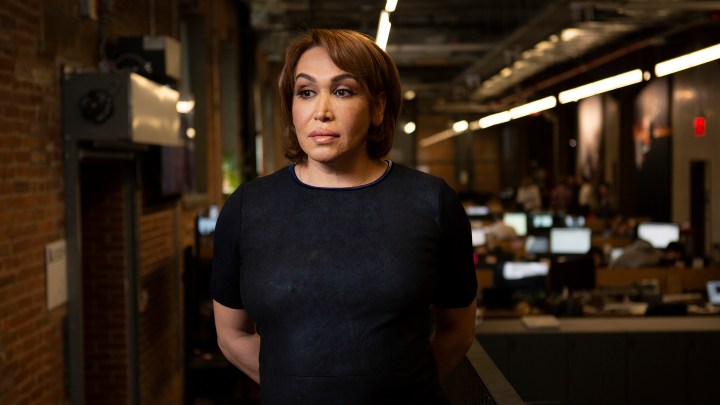
Trans workers face bias, barriers that affect income as pandemic lingers
Trans workers face bias, barriers that affect income as pandemic lingers

Before the pandemic, if you look by demographic, Black transgender employees faced the most economic challenges of any group of workers in the U.S.
The pandemic has piled on new challenges, but added federal protections and the increase in virtual interactions this year may be helping.
Applying for and interviewing for a job always involves a lot of scrutiny: your qualifications, how you present, how you sound, how you look. That scrutiny is still there during the pandemic, but remote screening seems to eliminate some bias.
“With the number of companies now doing phone screenings as a first line of entry, it’s actually given trans folks some more opportunity because they’re being assessed by the quality of their candidacy,” said Victoria Kirby York, deputy executive director for the National Black Justice Coalition.
It’s hard to get past that hurdle though. Jody Herman, a scholar of public policy at the UCLA School of Law, said her research shows that compared to the U.S. population at large, trans people are the most likely to be unemployed or living in poverty.
“And these issues are particularly worse for Black respondents and other respondents who are people of color,” Herman said.
For those who do land jobs, 77% of trans individuals say they’ve taken active steps to avoid mistreatment at work.
Hundreds of companies do have discrimination policies that cover trans employees, and some have gender-neutral dress codes and bathrooms.
But that’s often not enough, especially in the pandemic. Now bosses and colleagues are all peering into each other’s personal lives through computer screens.
“Especially for individuals who are not out about their identities, we’re seeing that from remote work that this might be a source of anxiety,” said Christian Thoroughgood, professor of psychology and human resources at Villanova University.
He said this summer’s Supreme Court ruling clarifying that the Civil Rights Act protects gay and transgender workers from workplace discrimination may push more managers to adopt and enforce more local policies protecting trans employees.
But, he adds, because the pandemic is ongoing, it’s hard to do research on the impact of the ruling, and it’s hard for workplaces to implement new policies.
COVID-19 Economy FAQs
Which essential workers should be prioritized for vaccines?
Americans have started to receive doses of the first COVID-19 vaccine. Front-line health care workers and residents of long-term care facilities will be first to get the shots, according to Centers for Disease Control and Prevention guidance. Essential workers will be considered next, but with limited vaccine doses and a lot of workers considered essential, the jockeying has already started over which ones should go to the front of the line: meatpacking workers, pilots, bankers and ride-share drivers among them. The CDC will continue to consider how to best distribute the vaccine, but ultimately it’s up to each state to decide who gets the shots when.
Could relaxing patents help poorer countries get vaccines faster?
The world’s poorest countries may not be able to get any vaccine at all until 2024, by one estimate. To deliver vaccines to the world’s poor sooner that, some global health activists want to waive intellectual property protections on vaccines, medicines and diagnostics. India, South Africa and Kenya have asked the World Trade Organization to allow pharmaceutical plants in the developing world to manufacture patented drugs without having to worry about lawsuits. The United States, Britain and the European Union, have repeatedly rejected the proposal at the WTO.
The Pfizer vaccine has to be kept in extreme cold at minus 94 degrees Fahrenheit. And keeping it that cold requires dry ice. Where does that dry ice come from?
Also, is there enough of it to go around? And how much is it going to cost? The demand for dry ice is about to spike, and a whole bunch of industries are worried. Now, dry ice sells for $1 to $3 a pound. While the vaccine gets priority, smaller businesses and nonessential industries may end up losing out.
As a nonprofit news organization, our future depends on listeners like you who believe in the power of public service journalism.
Your investment in Marketplace helps us remain paywall-free and ensures everyone has access to trustworthy, unbiased news and information, regardless of their ability to pay.
Donate today — in any amount — to become a Marketplace Investor. Now more than ever, your commitment makes a difference.

You make it possible.
Donate today & power nonprofit news tomorrow.








